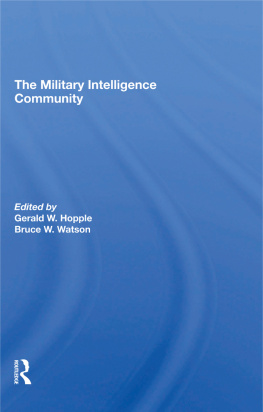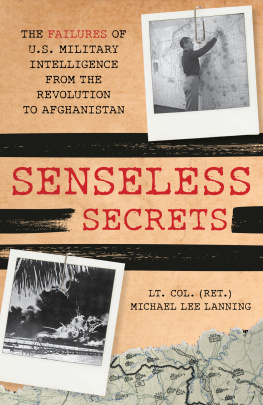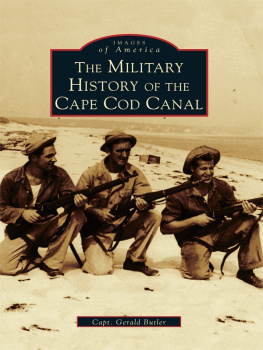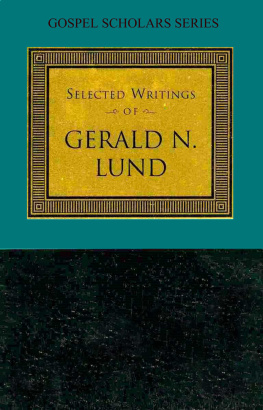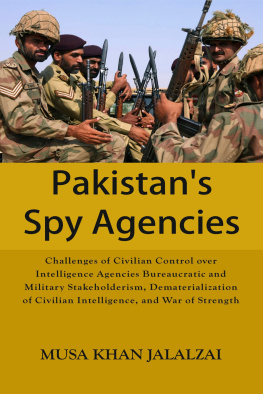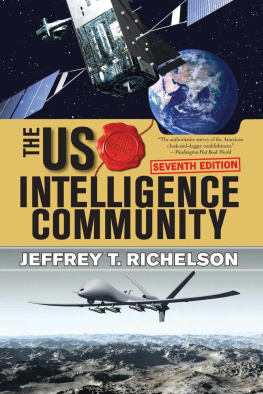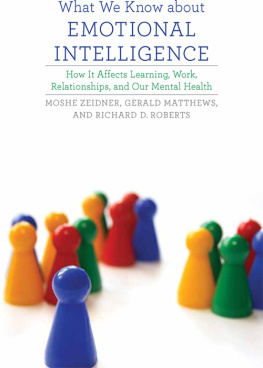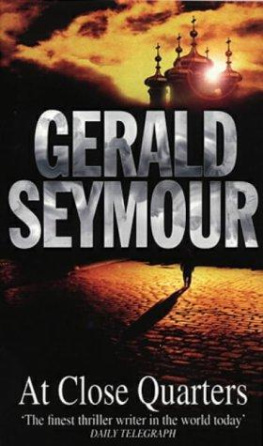The Military Intelligence Community
Westview Special Studies
The concept of Westview Special Studies is a response to the continuing crisis in academic and informational publishing. Library budgets are being diverted from the purchase of books and used for data banks, computers, micromedia, and other methods of information retrieval. Interlibrary loan structures further reduce the edition sizes required to satisfy the needs of the scholarly community. Economic pressures on university presses and the few private scholarly publishing companies have greatly limited the capacity of the industry to properly serve the academic and research communities. As a result, many manuscripts dealing with important subjects, often representing the highest level of scholarship, are no longer economically viable publishing projectsor, if accepted for publication, are typically subject to lead times ranging from one to three years.
Westview Special Studies are our practical solution to the problem. As always, the selection criteria include the importance of the subject, the work's contribution to scholarship, and its insight, originality of thought, and excellence of exposition. We accept manuscripts in camera-ready form, typed, set, or word processed according to specifications laid out in our comprehensive manual, which contains straightforward instructions and sample pages. The responsibility for editing and proofreading lies with the author or sponsoring institution, but our editorial staff is always available to answer questions and provide guidance.
The result is a book printed on acid-free paper and bound in sturdy, library-quality soft covers. We manufacture these books ourselves using equipment that does not require a lengthy make-ready process and that allows us to publish first editions of 300 to 1000 copies and to reprint even smaller quantities as needed. Thus, we can produce Special Studies quickly and can keep even very specialized books in print as long as there is a demand for them.
About the Book and Editors
An exhaustive study of all facets of the intelligence profession, this book treats military intelligence as the process of collecting, analyzing, and disseminating information for use by commanders and policymakers. Contributors to this volume, writing for intelligence officers and analysts at all levels, examine the structure of the intelligence community, the role of the Department of Defense, intelligence information, and counterintelligence. In a final section, the areas of convergence and tension between the military intelligence community and Congress, the media, and research and development institutions are explored.
Gerald W. Hopple was formerly a senior analyst at Defense Systems, Inc. Naval Commander Bruce W. Watson is a faculty member at the Defense Intelligence College and an adjunct professor in the Russian Area Studies Program at Georgetown University.
To Danny Hopple
The Military Intelligence Community
edited by Gerald W. Hopple and Bruce W. Watson
First published 1986 by Westview Press
Published 2019 by Routledge
52 Vanderbilt Avenue, New York, NY 10017
2 Park Square, Milton Park, Abingdon, Oxon OX14 4RN
Routledge is an imprint of the Taylor & Francis Group, an informa business
Copyright 1986 by Taylor & Francis
All rights reserved. No part of this book may be reprinted or reproduced or utilised in any form or by any electronic, mechanical, or other means, now known or hereafter invented, including photocopying and recording, or in any information storage or retrieval system, without permission in writing from the publishers.
Notice:
Product or corporate names may be trademarks or registered trademarks, and are used only for identification and explanation without intent to infringe.
Library of Congress Cataloging in Publication Data
The military intelligence community
(Westview special studies in military affairs)
Bibliography: p.
Includes index.
1. Military intelligenceUnited StatesAddresses, essays,
lectures. I. Hopple, Gerald W. II. Watson, Bruce W.
UB251.U5M55 1984 355.3'432'0973 84-15218
ISBN 13: 978-0-367-29407-6(hbk)
The military intelligence community is one of the most misunderstood and maligned facets of the U.S. government. To much of the American public, intelligence means an organization of James Bonds, sophisticated, super-individualists, John Waynes who live slightly beyond the law. To others, military intelligence is considered as a constant threat to American democracy, a danger that must be contained and minimized.
It is not enough to say that such impressions are fantasies. Rather, what is needed is a firm understanding of the military intelligence community, so that the public can deal with it more responsibly. In recent years, many books have been written on the community, and many U.S. universities have included courses on intelligence in their curricula. These efforts have done much to dispel the public's misconceptions concerning the subject. However, to date, no one has provided a book which fully discusses the organization and processes of Intelligence, and the major issues concerning the intelligence community. This book attempts to fill that gap by presenting the views of several experts.
We begin by examining the organization of the national intelligence community, and then, in , direct our attention to the military intelligence community's composition. We then determine what the community does. We begin logically by examining how the community collects its information. Then the means by which the community processes or analyzes this information to produce intelligence are discussed. (The community's third major function, disseminating intelligence, while important, is discussed adequately in the first two sections of the book.) Then the major issues of intelligence, specifically how it relates to both American ideals and other U.S. institutions, are addressed. An institution as provocative as the U.S. military intelligence community certainly creates controversy, and it is our intention to shed greater clarity on the major issues. Finally, the book concludes with a chapter that looks to the future and attempts to determine whether any progress can be made toward resolving the existing problems and controversies.
To conclude, this book has attempted to further define the nature, composition, and inherent problems of military intelligence and to examine the community's major controversies. If it generates additional thought and discussion, then we feel that it will have served its purpose.
Gerald W. Hopple
Bruce W. Watson
We wish to thank all of the contributors for participating in this study.
We are also indebted to Fred Praeger, Barbara Ellington, Dean Birkenkamp, and the staff of Westview Press for their advice, assistance, and encouragement.
We would also like to express our gratitude to Colonel John D. Macartney, U.S. Air Force, Commandant, and Dr. Robert Oe Gross, Provost of the Defense Intelligence College, for their support of this book.
Without the competent and patient support of the individuals who typed all of the drafts and final versions of the chapters of the book, this work would never have been possible. We are thus indebted to O. C. Moreland, Jr., Deborah J. Phillips, Mary H. King, Gloria D. Porche, Norma J. Dorey, and Jacquline D. Cooper.


